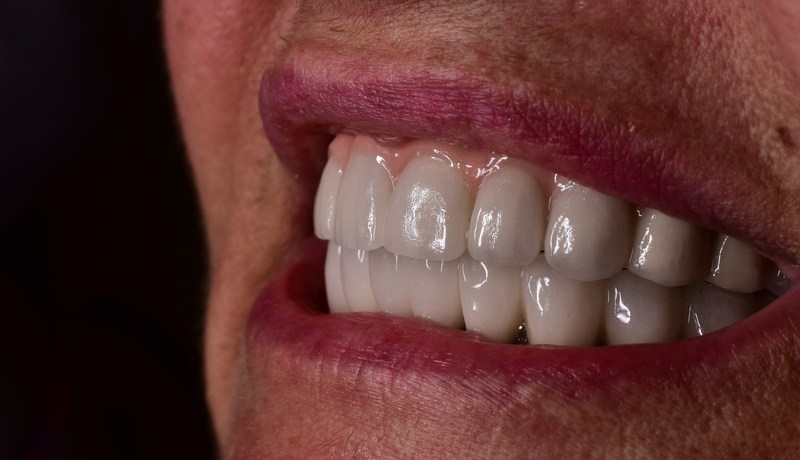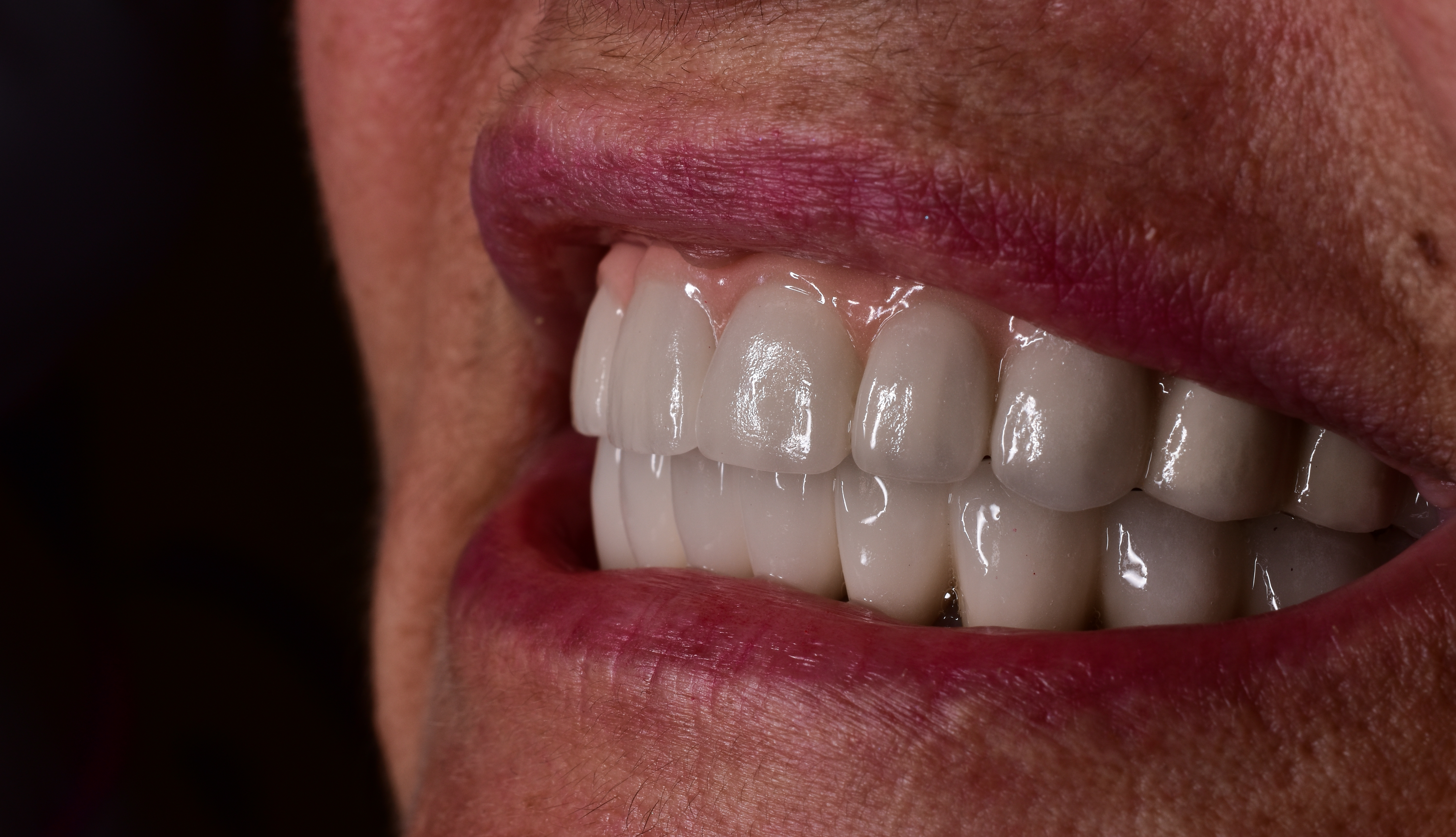
Wondering if it feels normal? In short, yes. Dental implants aim to replicate the feel and function of a natural tooth. Once integrated with the jawbone, they provide a stable base for prosthetic teeth, allowing confident eating, speaking, and smiling. The sensation is often indistinguishable from a natural tooth, with no shifting or movement during activities. After full healing and integration, many forget they even have an implant. With proper care, a dental implant can feel entirely normal and offer long-lasting functionality, resembling and lasting as a natural tooth would.

Does a Dental Implant Feel Normal?
Dental implants are a popular solution for replacing missing teeth. They provide a natural-looking and functional replacement that can restore your smile and improve your oral health. But one question that often comes up is, “Does a dental implant feel normal?” In this article, we will explore what it feels like to have a dental implant and address any concerns you may have.
Benefits of Dental Implants
Now that we have addressed the question of how a dental implant feels, let’s explore the benefits of getting dental implants.
– Natural Look and Feel: Dental implants are designed to closely resemble natural teeth, both in appearance and function. They blend seamlessly with your existing teeth, giving you a natural-looking smile.
– Improved Speech and Chewing: Unlike removable dentures, dental implants provide a stable and secure foundation for replacement teeth. This allows for better speech clarity and the ability to chew and eat your favorite foods without restriction.
– Long-Lasting Solution: With proper care, dental implants can last a lifetime. They are a durable and permanent solution for tooth replacement.
– Preserves Jawbone Health: When you lose a tooth, the underlying jawbone can deteriorate over time. Dental implants help to stimulate the jawbone, preventing bone loss and preserving your facial structure.
– Improved Confidence and Self-Esteem: Dental implants can restore your smile and improve your overall appearance. This can have a positive impact on your confidence and self-esteem, allowing you to feel more comfortable and confident in social and professional settings.
Taking Care of Dental Implants
To ensure the longevity and success of your dental implants, it is important to maintain good oral hygiene and visit your dentist regularly. Brush and floss your teeth as recommended, and use antimicrobial mouthwash to keep your mouth clean and free from bacteria. Regular dental check-ups and professional cleanings will also help to monitor the health of your implants and address any issues that may arise.
In conclusion, dental implants are designed to feel and function like natural teeth. They provide a stable and comfortable solution for replacing missing teeth, allowing you to eat, speak, and smile with confidence. While there may be an adjustment period after getting dental implants, any discomfort should subside as you heal and get used to the implant. Taking proper care of your dental implants will ensure their longevity and success in restoring your smile and oral health.
Key Takeaways: Does a Dental Implant Feel Normal?
- A dental implant can feel very similar to a natural tooth.
- The implant is anchored securely in your jawbone, providing stability and functionality.
- With time, you may not even notice the difference between the implant and your natural teeth.
- Chewing and speaking should feel comfortable and natural with a dental implant.
- Regular oral hygiene practices, such as brushing and flossing, are necessary to maintain the health of the implant.
Frequently Asked Questions
How does a dental implant feel after the procedure?
After the dental implant procedure, it is normal to experience some discomfort and swelling in the treated area. This is part of the healing process and can vary from person to person. Your dentist will prescribe pain medication to help manage any discomfort. It is important to follow their instructions and take the medication as directed.
Over time, as the implant integrates with the jawbone and the surrounding tissues heal, the discomfort will gradually subside. Most patients report that after a few days or weeks, they no longer experience any significant pain or discomfort. The implant will eventually feel like a natural part of your mouth, and you will be able to eat, speak, and chew with ease.
Will a dental implant affect my ability to taste?
No, a dental implant will not affect your ability to taste. The implant itself is made of biocompatible materials, such as titanium, which do not interfere with your taste buds or sense of taste. The implant is placed in the jawbone and acts as a replacement for the tooth root. It does not come into direct contact with your taste buds or affect the taste receptors in any way.
If you experience any changes in your sense of taste after getting a dental implant, it is important to consult with your dentist. There may be other factors unrelated to the implant that are causing the change in taste, and your dentist can help identify and address the underlying issue.
Can I eat normally with a dental implant?
Yes, you can eat normally with a dental implant. Once the implant has fully healed and integrated with the jawbone, it becomes a stable and secure foundation for your replacement tooth or teeth. This means you can enjoy all your favorite foods without any restrictions.
Unlike dentures, which can sometimes slip or shift while eating, dental implants are firmly anchored in the jawbone. This provides a natural biting and chewing ability, allowing you to eat with confidence. Whether it’s biting into an apple or chewing a steak, a dental implant will feel just like a natural tooth.
Will a dental implant feel different from my natural teeth?
While a dental implant may feel slightly different from your natural teeth initially, over time, it will feel very similar. The implant is designed to mimic the function and appearance of a natural tooth, so it should blend in seamlessly with your existing teeth.
It is important to note that everyone’s experience may vary slightly, as each person’s perception of sensation can differ. However, most patients find that their dental implant feels and functions just like a natural tooth. With proper oral hygiene and regular dental check-ups, your implant can last for many years, providing you with a comfortable and functional replacement for your missing tooth.
Are there any long-term complications with dental implants?
When properly placed and cared for, dental implants have a high success rate and few complications. However, like any dental procedure, there can be some potential risks and complications. These can include infection, implant failure, nerve damage, or damage to surrounding structures.
It is important to choose a qualified and experienced dentist to perform your dental implant procedure. They will conduct a thorough evaluation of your oral health and discuss any potential risks or complications with you. By following proper oral hygiene practices and attending regular dental check-ups, you can minimize the risk of complications and ensure the long-term success of your dental implant.
Do Dental Implants Feel Like Teeth?
Final Thoughts: Does a Dental Implant Feel Normal?
Call or Book appointment online
:Ace Dental Care Alpharetta office: 678-562-1555 - Book Now
Ace Dental Care Norcross office: 770-806-1255 - Book Now
Disclaimer
This blog post was generated by artificial intelligence. The content of this post may not be accurate or complete, and should not be relied upon as a substitute for professional advice. If you have any questions about the content of this post, please contact us.
We are constantly working to improve the accuracy and quality of our AI-generated content. However, there may still be errors or inaccuracies. We apologize for any inconvenience this may cause.





